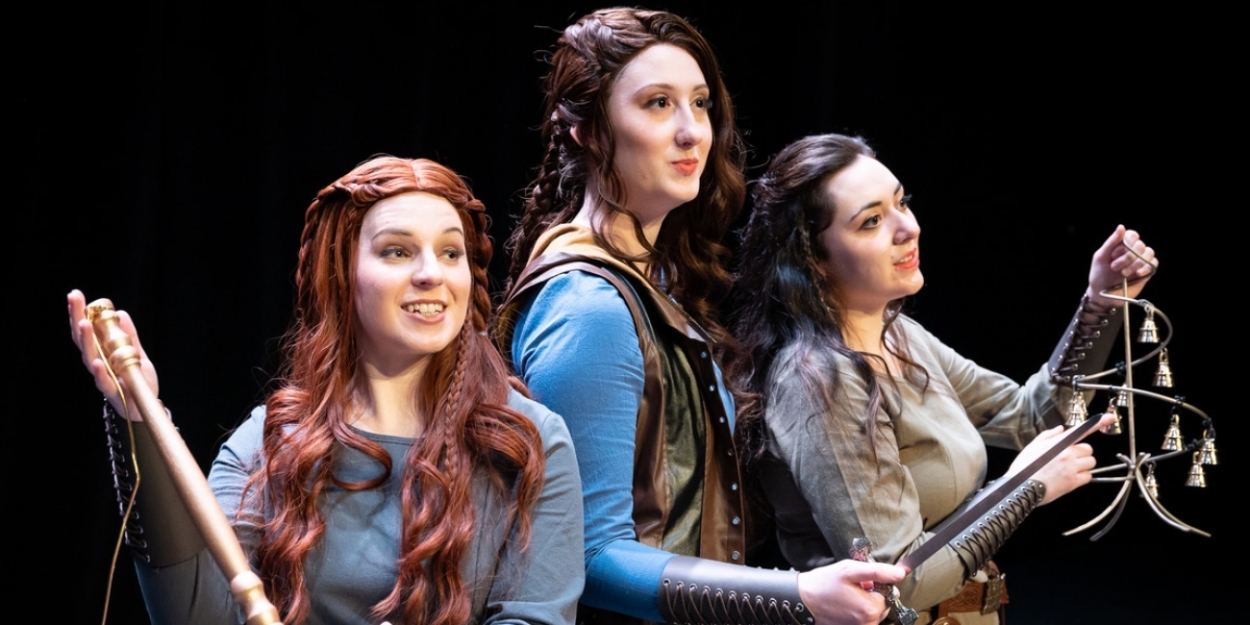THE MAGIC FLUTE to be Presented at Portland State University Opera in April
Mozart's "The Magic Flute" is a celebration of truth, courage, sacrifice and love as the true path to enlightenment.

![]()
Portland State University Opera will present Mozart's final opera, "The Magic Flute," April 21 through April 30, 2023, at Lincoln Performance Hall, 1620 SW Park Avenue, Portland. Tickets ($20 - $45) and information are available at https://www.pdx.edu/music-theater/magic-flute or by calling (503) 725-3307.
PSU Opera, the nationally recognized opera training program of the PSU School of Music & Theater, performs the singspiel in its original German. With a score by the legendary composer and a libretto by Emanuel Schikaneder, Mozart's beloved "The Magic Flute" is a celebration of truth, courage, sacrifice and love as the true path to enlightenment. PSU's production is helmed by internationally known opera director Linda Brovsky.
PSU's "The Magic Flute" invites audiences into a medieval, high-fantasy realm, rich with mystical, gothic visual themes and filled with terrifying serpents, mischievous fairies and charming forest animals. The dashing Tamino and his bird-catching sidekick Papageno find themselves facing a life-changing challenge issued by the Queen of the Night: to rescue her daughter, the beautiful princess Pamina, who has been imprisoned by the evil sorcerer Sarastro. Armed with little more than a magic flute and an unshakeable commitment to true love, Tamino and Papageno embark on a journey to find the princess. Along the way, they discover that not all is as it appears in this mysterious realm. Pamina and Tamino soon fall in love, and together they face grueling trials that test their steadfastness in a battle of good against evil. The full synopsis for "The Magic Flute" can be found here.
The last opera Mozart would write, "The Magic Flute" (Die Zauberflöte) premiered in late September 1791 in Vienna, Austria. He passed away at age 35, just over two months after conducting its first performance, capping a brief life and spectacularly prolific musical career. Widely considered to be one of the most gifted composers in the history of classical music, Mozart wrote more than 800 works, ranging from operas to symphonies, concertos, chamber music and masses. Opera in Mozart's time was typically performed for the aristocracy, and Mozart himself was in the employ of one such aristocrat, Salzburg's Archbishop Colloredo. The young musician strained against the confines of this employment, however, and struck out on his own, writing and staging concerts and works that proved popular with audiences and dazzled his contemporaries. However, despite his prolific output and recognized brilliance, Mozart reached the end of his life in a state of poverty - a far cry from the wealthy aristocrats who had sponsored him.
Schikaneder and Mozart created "The Magic Flute" as a work for the Austrian people, using the vernacular German instead of Italian and tailoring the opera to the general public. It is believed that both were followers of the Freemasons, who embraced the ideals of liberty, virtue, knowledge and enlightenment, challenging the status quo and taking power from the aristocracy. The opera is filled with Masonic symbolism, seen in the temple, purification rituals, and repeated occurrences of the number of three throughout the work.
"'The Magic Flute' emphasizes the ideas of sacrifice, rationality, beauty and love," said Kelley Nassief, PSU's Director of Opera and Opera Studios. "It explores how we can use our own agency and sense of hope to find our way out of the darkness. Under Linda Brovsky's direction, this production speaks directly to our current societal pressures, where young people must find their way in a confusing, divisive world."
"It also features some of the most recognizable and loved opera music of all time, with an ingenious score that includes everything from folk music to elegant and refined pieces, to brilliant harmonics that foretell the romantic era," Nassief said.
Stage director Linda Brovsky leads a cast of talented, accomplished young singers in the beloved comedic opera. Brovsky has directed productions on operatic stages across North America, including the San Francisco Opera, Los Angeles Opera, Seattle Opera, Opera Theater of Saint Louis, and many more. A sought-after mentor and teacher of young singers, she has directed productions for Yale University, the Manhattan School of Music and San Francisco Opera's Merola program, in addition to leading scenes programs at Carnegie Mellon University and Santa Fe Opera's Apprentice Program.
For this production, Brovsky is collaborating with an accomplished creative team, including Dr. Chuck Dillard, Music Director; Lawrence Larsen, Set Designer; Peter West, Lighting Designer; and Paige Hanna, Costume Designer. The PSU Orchestra, conducted by Chuck Dillard, will accompany the performers.
About Portland State Opera
Established in 1977, Portland State University Opera is a world-class professional training ground for students in the vocal arts, and one of few in the United States that offers both undergraduate and graduate students opportunities to take on leading roles in full-scale opera productions. Alumni of PSU's vocal arts program have established professional careers with roles on Broadway, the Metropolitan Opera and beyond.
Each performance will be visually translated with English text projected above the stage. A pre-show talk will take place one hour before each performance.
Tickets for "The Magic Flute," April 21 at 7:30 p.m., April 23 at 3:00 p.m., April 29 at 7:30 p.m. and April 30 at 3:00 p.m. are now available.
For more information, and to purchase tickets, visit https://www.pdx.edu/music-theater/magic-flute or call the PSU Box Office at 503-725-3307.
Comments
Videos

